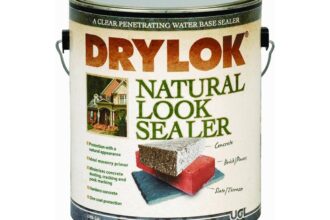What Will You Need to Qualify for a Home Mortgage?

 Before the market crash of 2007-08, the regulations surrounding mortgage loans were comparatively lenient. This allowed potential home buyers to qualify for a loan easily. Lenders were handing out loans to borrowers who actually could not repay the mortgage. Post the Great Recession, several strict regulations were passed by the Feds that required appropriate documentation to ensure loans were sanctioned only to carefully vetted buyers.
Before the market crash of 2007-08, the regulations surrounding mortgage loans were comparatively lenient. This allowed potential home buyers to qualify for a loan easily. Lenders were handing out loans to borrowers who actually could not repay the mortgage. Post the Great Recession, several strict regulations were passed by the Feds that required appropriate documentation to ensure loans were sanctioned only to carefully vetted buyers.
Documents Required for a Home Loan Application
Today, if you want to qualify for a home loan, you are required to provide the following documentation:
Photo ID: A government-issued photo identification is a must when submitting your home loan application as proof for confirming you are who you say you are.
Income Proof: Lenders may evaluate your DTI or debt-to-income ratio. This ratio compares your existing debts and loans against your monthly gross income. They may also require that the property value should not be more than 28% of your pre-tax income. Moreover, you may be required to have a down payment amount in cash of between 3.5% to 20% of the list price.
Lenders adopt this procedure to make sure that you have the required finances to pay for your loan payments and bills. You can provide your income proof to the lenders in the form of W2 forms or monthly pay stubs.
Tax Returns: If your paychecks do not offer complete information about your financial situation, you may be asked to provide your tax return forms. The lender can also ask for your permission to conduct a review of your IRS tax history.
Proof of Assets: Lenders may also ask you to provide statements of your savings and checking account balances and your investments. This makes it essential to have a good income standing and sufficient funds in your account before submitting your loan application.
Credit Score and Credit Report: Your loan approval and interest rate also depend on your credit score. Credit reports provide lenders the complete information about your borrowing history, collections, credit cards, credit inquiries, and public records. A good credit score of 750 or higher can help you secure a good interest rate.
Renters History: If you are a first-time buyer, you may be required to provide additional documentation such as your renter’s history that includes information of your previous housing payments.
Gifts Documentation: In case your friends or family are helping you in the home buying process, and there is a sudden influx of cash, it may seem like a loan to the lenders. This can critically affect your ability to borrow a loan. Hence, whenever you are gifted money that will go towards the house purchase, obtain a gift letter from the donor that clearly states that no repayment is expected.
How Can A Good Mortgage Professional Help You?
Both first-time buyers and homeowners planning to purchase a second property are recommended to hire a mortgage professional who can help you navigate the home buying process. A seasoned mortgage expert can help you evaluate your loan documents and offer different loan options at competitive rates. Moreover, a mortgage expert will be there to answer all your questions and prepare you to buy your dream house.






